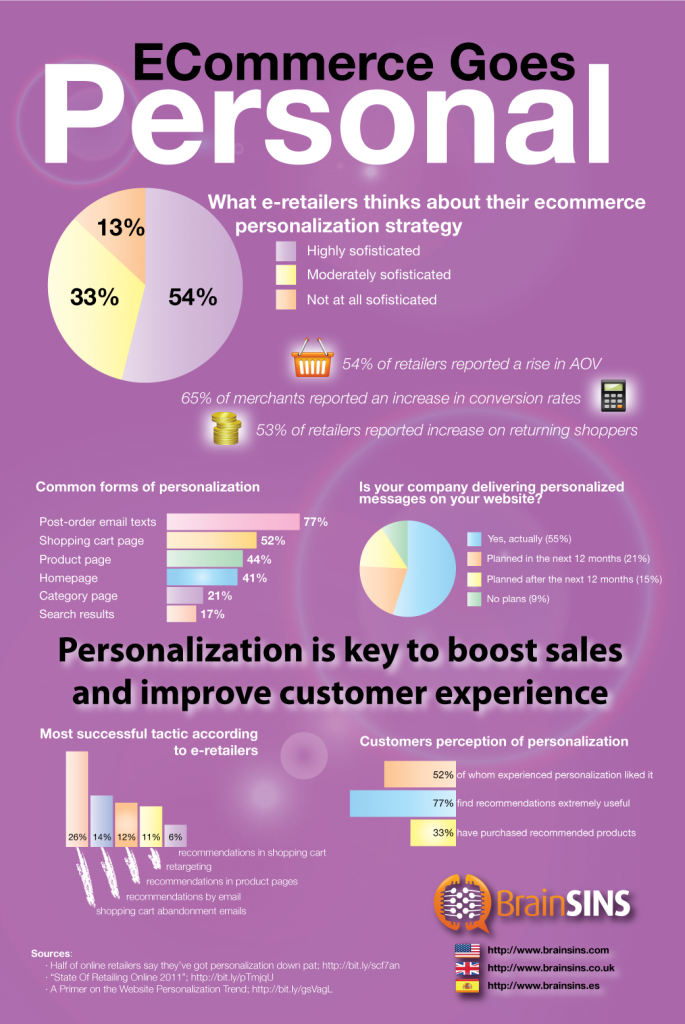What Is Ecommerce Personalization?
Ecommerce personalization refers to taking personal data that you collect from online visitors and using it to display more relevant messages to targeted individuals. By examining the hits on your website, and taking special interest in who downloads your whitepapers, or who lands on your product pages and enters a checkout process, you can turn an anonymous visitor into a loyal customer.
This infographic from BrainSINS explains that most ecommerce companies consider personalization a sophisticated marketing tactic that increases conversion rates and results in higher average order values through product recommendations and cart abandonment emails.
Begin With Tests
As with most things in ecommerce, testing for conversion rate optimization is the key to knowing if you are headed in the right direction.
Consider testing emails with personalized subject lines.
Or display products visitors have previously seen through retargeted ads, testing your display frequency and times of day.
Listening on social media is another way to gain perspective on your customers. Gary Veynerchuk once told a story about how he had his “Thank You Department” follow one of his customers on Twitter for a month to find out what they liked in order to send this customer a personalized gift.
Be Cautious With Ecommerce Personalization
What was once a drought of information for marketers is now a deluge. However, the vast amount of information at our disposal must be used correctly. We know so much about our customers and we have so many ways to reach out to them that we have to be careful not to frighten them.
As this New York Times article on the practice says, ” … when personalization gets too personal … it can come too close for many consumers’ comfort. It turns out that hyper-customization may produce reactions similar to the ‘uncanny valley’ effect in robotics in which people find themselves repulsed by humanoids that too closely resemble human beings.”
What do you do with the customer data that you gather? Tell us how you use personalization to market your products to your customers in the comment section below.
